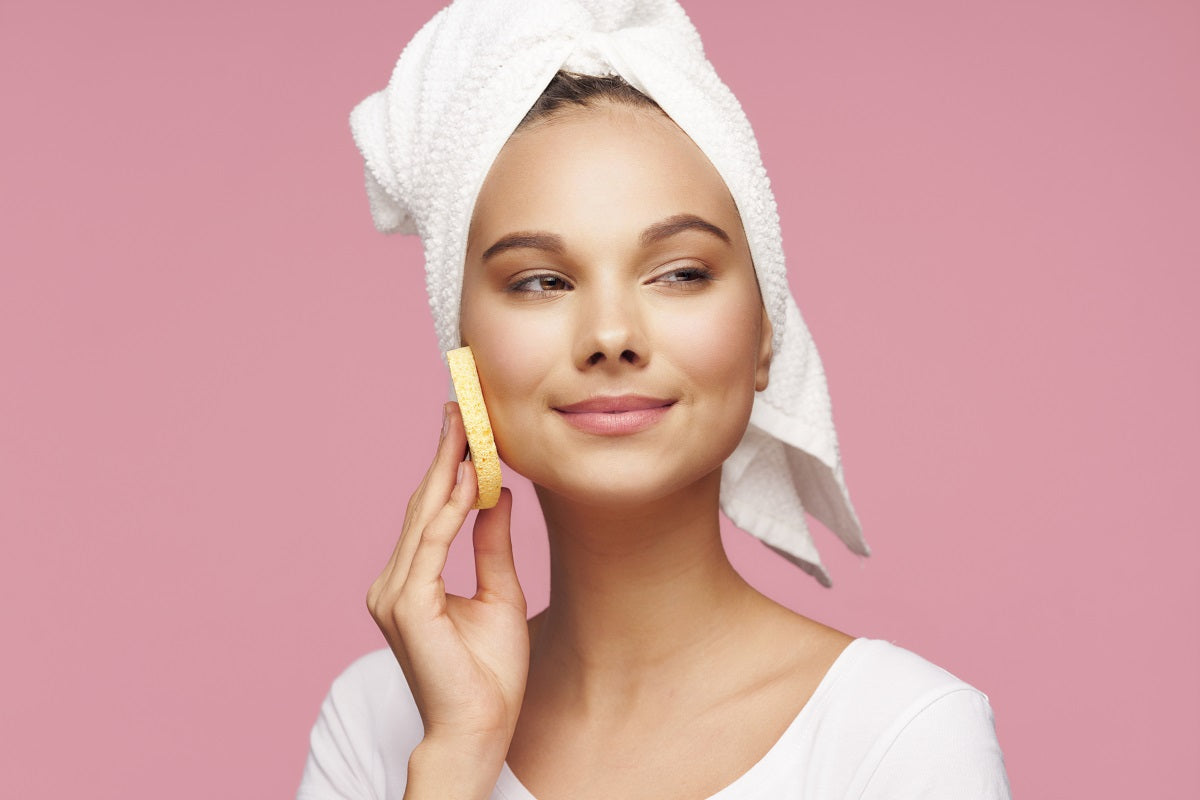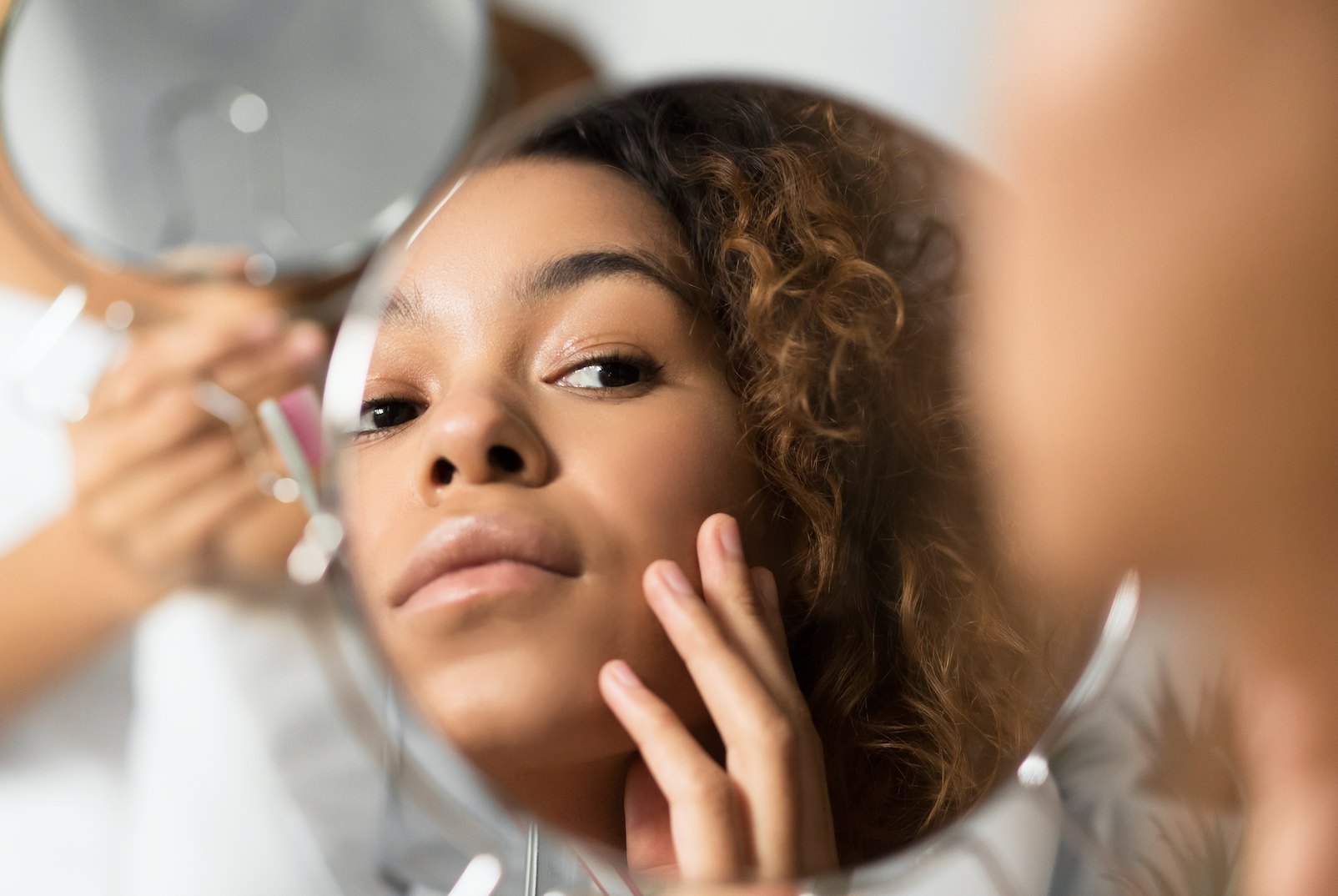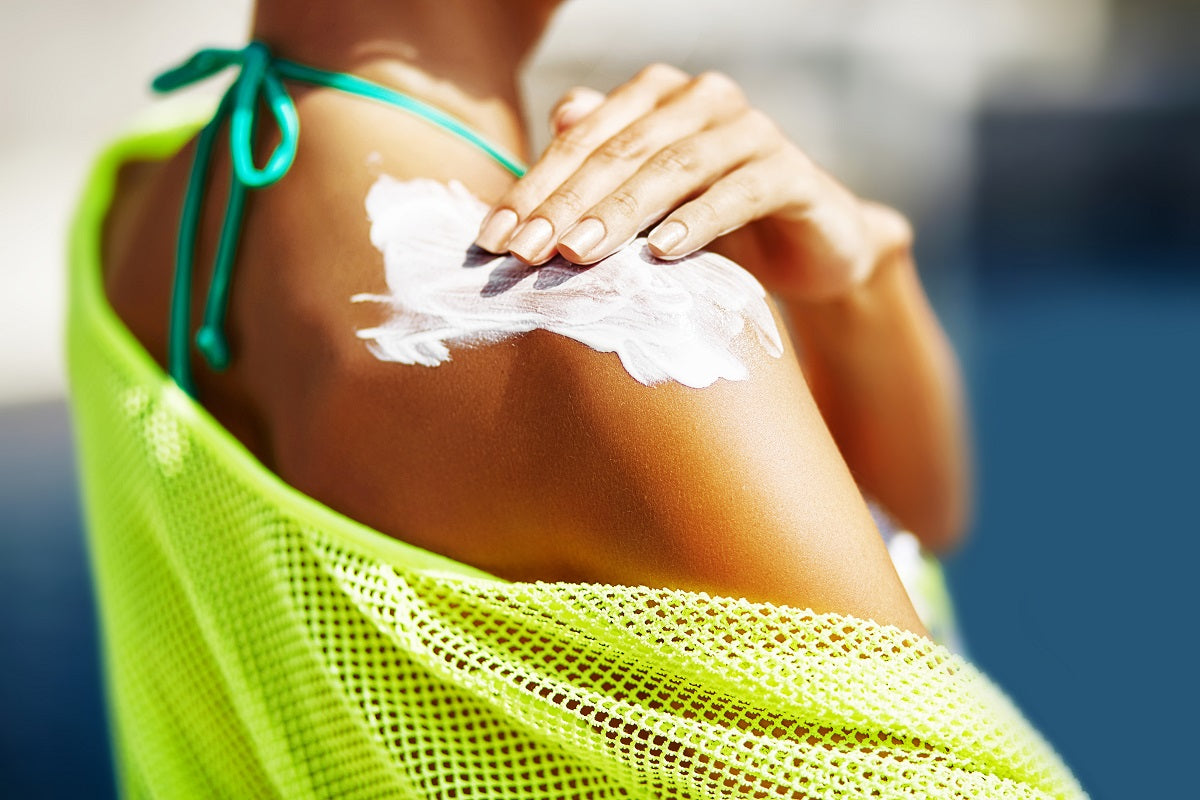
4 Zinc Benefits for the Skin
Let’s face it. When we think about zinc and skin care, most of us might be left scratching our heads. Could zinc—you know, that thing you always hear about in cough drop commercials—be the secret to achieving glowing, healthy skin?
All signs point to yes. This mighty mineral has a multitude of benefits that can soothe, prevent, and heal a wide range of common skin issues.
To learn more about how zinc can empower you in your skincare journey, read on. We’ll unpack the top zinc benefits for skin and discover the best ways to use the mineral so that you can leverage its anti-inflammatory, and antioxidant properties.
I’ve Heard of Zinc... But, What Is It?
Zinc plays a role in the body’s proper function. A superstar when it comes to providing support, zinc enables a wide range of systems, including
- Childhood growth and development
- The construction of proteins and DNA
- Immune system function
- Metabolic function
- Wound healing
Because zinc is required for so many cellular processes like cell growth and division, it’s fundamental for the well-being of our entire bodies—and that includes our largest organ, the skin. So, what does zinc do for the skin?
Let’s dive deeper into the ways this powerhouse nutrient helps our skin become its strongest, softest self.
1. Zinc Fights Inflammation and Heals Problem Skin
Zinc is your BFF when it comes to healing skin that’s infected or inflamed. When applied topically to wounds, the mineral has been found to mitigate the release of inflammatory proteins and even reduce the chance of secondary infections and decay. It can even calm areas impacted by rosacea—an inflammatory skin condition characterized by redness—when applied topically.
Because it’s a key player in the body’s cell-growing function, zinc is ready for action when you need it—building new cells and shipping them right to that sore on your chin.
You know, the pimple that you promised you weren’t going to pick at? That one. Which brings us to acne. Does zinc help with acne?
Zinc and Acne
With its immune-boosting inflammation-busting properties, zinc is a powerful asset in the fight against acne—the skin condition marked by painful blemishes and pimples.
Because it lessens the body’s inflammatory response, zinc may help control acne flare-ups and reduce the redness and irritation that come with pimples. Zinc also addresses the root of some common breakout triggers, helping to regulate the oil, dead skin, and bacteria that can clog our pores (and ruin our days).
Research from 2014 confirms that there might be a connection between zinc levels and acne. People with severe acne tended to have lower levels of zinc than their clearer-skinned counterparts.
Zinc deficiencies are also common in folks who suffer from eczema (itchy inflammation of the skin) and melasma (dark patches).
2. Zinc is an Anti-Aging Powerhouse
As we get older, our bodies slow down their production of collagen and elastin—the two proteins that keep our skin looking supple, firm, and youthful.
Zinc, with its integral role in the production of proteins, is fundamental in boosting collagen and elastin and keeping the fine lines and wrinkles that come with aging at bay.
But zinc’s utility as an anti-aging asset doesn’t end there. The mighty metal performs the work of an antioxidant, protecting the skin’s lipid layer and combating the free radicals that threaten to break down collagen and cause the appearance of aging.
When taken orally as a supplement, zinc can ease the appearance of aging signs like spots and lines, helping to keep skin looking refreshed and recharged through the years.
3. Zinc Makes a Powerful Sunscreen
Okay, if you’ve spent a lot of time on the beach, in movie theaters, or at Baywatch theme parties, you’re probably familiar with the image of a sun-kissed lifeguard complete with red shorts and a bright white nose—probably slathered in a thick layer of zinc oxide.
There’s a reason that this image is so culturally pervasive. Zinc oxide makes for incredibly effective sun protection.
But what is non-nano zinc oxide? This sun-blocking superhero combines zinc and oxygen to make a white compound that acts as a physical barrier, blocking the skin from harmful UV light.
While many sunscreens protect users by imbuing the top layers of their skin with chemicals meant to weed out dangerous rays, zinc oxide shields the sun altogether.
If this sounds good, but you’re daunted by the idea of rubbing in a thick protective layer on a busy beach day (or traumatized by images of white-nosed tourists), fear not—zinc oxide-based sunscreens, contain micronized particles, so they go on smooth and clear.
Let’s not neglect to mention a final but significant detail when considering zinc oxide skin benefits: it's gentle.
Because zinc oxide is naturally inert, it’s not only a safe option for babies and people with sensitive, reactive skin. If you’re a fan of our oceans, you’ll probably be pleased to learn it’s also reef-safe.
4. Zinc Soothes Itchy Scalps
It’s evident that zinc has many potential benefits for the skin on your face and body—but what about your scalp?
The active ingredient listed on most anti-dandruff shampoos, zinc pyrithione has antifungal, antimicrobial, and antibacterial powers that can help zap seborrheic dermatitis (also known as dandruff) and scalp psoriasis.
This type of zinc is meant for topical use only—it might burn your eyes or mouth if it comes into contact with them—and works by exterminating the fungi, microorganisms, and bacteria that can make things a flaky, itchy mess.
How to Use Zinc for Better Skin Health
Just as there are myriad ways that zinc contributes to the health and happiness of our skin, there are myriad ways to use it.
Eat Your Zinc
As Danielle Frank, a senior dietitian at Top Balance Nutrition put it to Byrdie: “The best way to make sure you are consuming the right amount of zinc for healthy skin is to incorporate foods that are known to be good sources of the essential mineral.”
Because skin conditions like acne, eczema, rosacea, and melasma can be symptoms of zinc deficiency and inflammation, make sure to hit your daily intake goals (that’s about 11 milligrams for men and 8 milligrams for women).
If you need a boost:
- Fill your diet with zinc-rich foods – Experts agree that the easiest way to ensure that your zinc levels are up to par is to maintain a diet filled with zinc-rich foods, including chicken, red meat, beans, and fortified cereals. Bonus? If you’ve been looking for a sign to order yourself a seafood tower, this is it—lobster, crab, and oysters have the most zinc of all.
- Seek supplements – Oral supplements are effective in improving acne, decreasing both pimple count and inflammation with continued use. What’s more, nearly three-quarters of eczema patients in one study had total improvement in their skin after one month of oral zinc supplements.
Know If You’re Getting Enough Zinc
If you’re at risk of zinc deficiency or need an extra boost in the battle against acne, eczema, or aging, consider oral supplements.
Folks at risk of zinc deficiency include:
- Vegans and vegetarians
- Heavy drinkers
- Those with leaky gut syndrome/malabsorption
When it comes to supplements, start small and keep the course—don’t exceed 40 mg of zinc per day.
Try Skincare Products with Zinc
Finally, consider expanding your skincare arsenal to include creams, balms, and gels that contain zinc—these topical treatments can soothe irritated skin, encourage cell growth, and stymie bacteria and infection.
- For acne-prone skin– If you’re interested in spot treatment for problem areas or a salve for broken-out skin, lotions, gels, and creams that contain zinc can accelerate healing, prevent infection, and aid in skin regeneration. Try applying topical zinc to shrink cystic pimples or to rebalance oily skin.
- For sun protection– Lotions with gentle, protective zinc oxide—which sits on the surface of the skin and shields harmful UV rays.
- For youthful-looking skin – Zinc can promote healthy cell production so your skin can look its youthful best. Look for night creams and under-eye treatments that contain zinc to enjoy zinc’s anti-aging powers.
Take Your Skin Health to the Next Level with Zinc and Averr Aglow
When it comes to skincare, zinc is an overachiever—impacting many aspects of our largest organ’s overall health. This busy nutrient treats a wide range of skin conditions, including acne, rosacea, eczema, and dandruff, and it also prevents the formation of fine lines and wrinkles.
Zinc is not only crucial for the smooth operation of our body but also for the smooth appearance of our complexions, so we need to make sure we get enough of it—whether that’s via lobster Benedict at brunch or a steady course of oral supplements.
How you choose to manage your zinc levels is personal, just like the rest of your skincare journey. But it’s always a great idea to start by eating consciously, researching supplements, and incorporating zinc-based products like Pure Protection Invisible Mineral Face Sunscreen SPF 30 from Averr Aglow into your beauty routine.
What to Do Next? Try Averr Aglow’s Clear Skin Kit
Tired of feeling lost and confused about what you should do to get clear, smooth skin? Order the Clear Skin Kit.
The Clear Skin Kit contains products specially crafted with the perfect blend of natural ingredients that help soothe and calm red, irritated skin while also clearing up breakouts. If you struggle with sensitive acne/breakout-prone skin, hormonal acne, cystic acne, or rosacea, then you’ll be happy you found this complete routine.
Please understand, that results may vary, we’re not selling you a miracle product and would never try to position or state that you will get a true result in only a few days. In our clinical trials, most users found the most results at the 30-day and then the 56-day mark by sticking with our routine.
What is Averr Aglow®?
Averr means Truth. We have pioneered a revolutionary no-rinse cleansing routine specifically tailored to address problematic skin issues.
Hi, I’m Camille, founder of Averr Aglow, and I help adult women who are battling breakouts and acne get clear skin results like they have never seen before, even if nothing has worked for them in the past.






